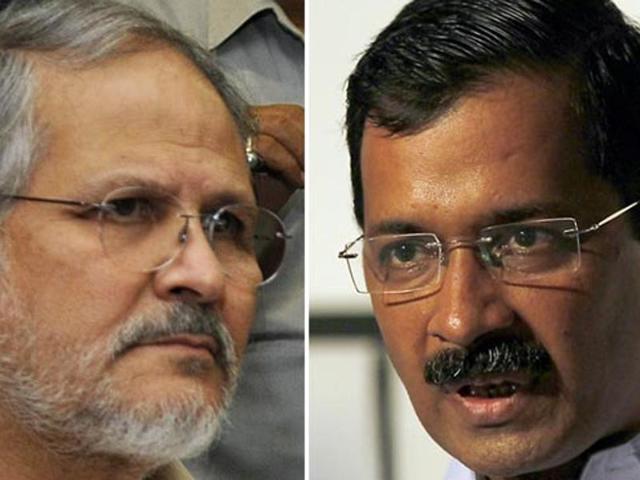Jung vs Kejriwal: Both sides have to learn to work together
Aap Aadmi Party cannot wash its hands off issues which are in the Lieutenant Governor’s domain, rather it should come up with constructive suggestions. Now that the ground rules have been laid by the court, both sides have to learn to work together howsoever difficult this may seem in the present charged atmosphere
The tussle between Delhi’s lieutenant governor Najeeb Jung and the Aam Aadmi Party government now resembles a perpetual motion machine. No issue howsoever small goes unchallenged by one or the other. With the court ruling that power in a Union Territory ultimately vests with the Lieutenant Governor (L-G) as the administrator of Delhi, the government has upped its attacks on the L-G, the latest salvo being a remark from an AAP leader that Mr Jung harbours a perennial hatred for chief minister Arvind Kejriwal.

Read | L-G Najeeb Jung is the boss in Delhi: High court tells Kejriwal’s AAP govt
In all this, those who are suffering are the people of Delhi who voted overwhelmingly for this government. With the L-G now reviewing many decisions taken by the government, we are likely to see a further governance gridlock. Delhi has many problems, not the least of which is the safety and security of people in general and women in particular. This lies within the domain of the L-G and politics should not hold up moving ahead on this. The issue of rampant unauthorised construction is another issue which is causing huge problems in Delhi. Public transport is yet another as is water supply. The government must understand that any criticism of its record is not necessarily an attempt to dislodge it. It must focus on the promises it made when it was elected, that of good and clean governance.
Read | Jung vs Kejriwal: Delhi L-G wants back files cleared without his approval
Previous governments have worked with L-Gs and though there have been glitches, things have moved along quite smoothly on several issues. Disagreement, as the L-G has said, does not mean confrontation. AAP has to sit together with the L-G and evolve a more conciliatory approach to governance. If those at the top are not on the same page, the bureaucracy, too, will not be able to function to its potential fearful as it will be of getting caught in the crossfire. Both sides should try and work on areas where there are least points of contention for a start. AAP is looking to expand its footprint across India and for that its performance in Delhi will be keenly observed by potential voters. While it is true that a Union Territory has its own unique functioning problems, there is nothing in the present case which cannot be sorted out. AAP cannot wash its hands off issues which are in the L-G’s domain, rather it should come up with constructive suggestions. Now that the ground rules have been laid by the court, both sides have to learn to work together howsoever difficult this may seem in the present charged atmosphere.





